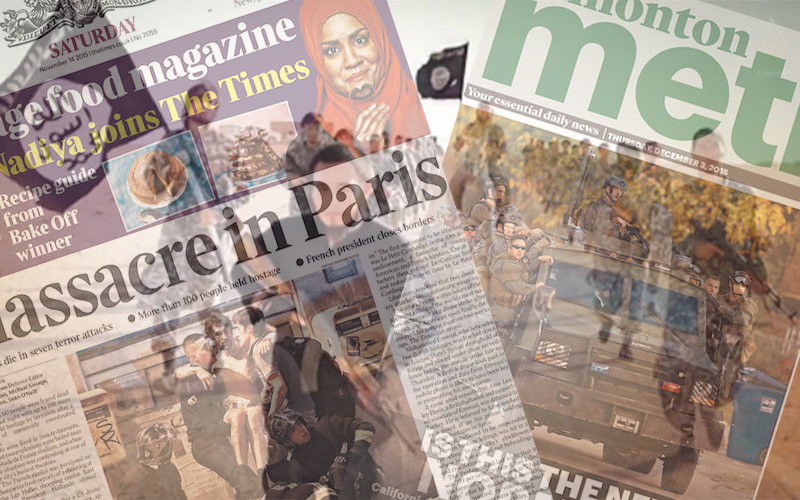
Being Held Hostage by the “New Normal”
The term “new normal” was previously used to describe the aftermath of the Great Recession and the economic impact it had on individuals, organizations, governments and societies. It has subsequently been used in other contexts to describe what ‘used’ to be considered an aberration or abnormal event, but has become so commonplace and all encompassing, that it is now considered ‘normal.’ The same must now be said about the security environment the world is living in. Sadly, shootings, knifings, bombings and other forms of mass slaughter of innocent people have now become the new normal.
The headlines from the previous few weeks are a testament to this: mass killings by knife in Japan and the U.K., by truck in France, and by gun in the U.S. are among the highest profile examples. Hundreds of people die every week around the world — in conflict zones and all corners of the world – as a result of the deteriorating security environment. Many incidents are acts of terrorism, but, equally importantly, many are not. It has always been the case that being in the wrong place at the wrong time can have disastrous consequences, but never before has it been the case that one’s chance of being in the wrong place at the wrong time, in an otherwise ‘safe’ country, can result in death or injury from a weapon (as opposed to a car crash, bridge collapse, or lightning strike, for example).
Apart from the infiltration of devotees to the Islamic State and other terrorist organizations – who are either home grown or pass through borders undetected by virtue of their porous nature or the rights of citizenship – literally anyone with a desire to carry out attacks on civilians virtually anywhere in the world is emboldened to do so because of the pervasive nature of terrorism, and because anyone with a cell phone or computer may transform him/herself into an instant media sensation. This has encouraged individuals who may never have seriously considered acting on their impulses or desires to do so. When combined with how simple it is in many countries to obtain a gun, buy a knife or even simply to drive a car, literally any place may become a crime scene at any time.
Social, ethnic, religious, and income divisions in so many societies have added substantial fuel to the fire. Tension and hatred exists on so many levels in so many countries that it is a wonder that more mass casualty events do not occur with greater frequency. We have become numb to the daily headlines and expect to switch on the news and hear about ‘today’s’ mass casualty event(s). Not so long ago, we would have been shocked at news of a single murder in our midst. Today, we expect to hear a long list of gruesome news, and since it has become so commonplace, we are no longer shocked. In a way, we have become anesthetized by the deterioration of our expectations. Not watching the news doesn’t make it disappear. Short of moving to a place far removed from that reality, there is no escape.
Since the only way a mass casualty event may be avoided is to know about it in advance, and since – no matter how fine our intelligence, military, police and security services may be – there is simply no way they can know about every event (planned or otherwise), we are now resigned to the fact that mass casualty killings have become a permanent part of our daily existence. Even knowing about an event in advance does not necessarily mean it may be avoided. We do not have the resources to devote to tracking and stopping each individual who may be inclined to kill other people.
That means that the change must come from each of us. Since we are all being held hostage to the deterioration of our collective security environment, all of us must become more attuned to our environment. We must focus on where we are and who is around us at any given point in time. We must listen to our gut instincts, which are usually accurate. If a person or a place just doesn’t feel right, go the other way. If you sense that going in a building or on a certain train or bus isn’t a good idea, then don’t. Part of what happens or doesn’t happen to each of us is a matter of fate, but part of it is also a function of the decisions we make or don’t make. To the extent we have the ability to take back some control in this era of the new normal, we must do so.
This article was originally posted in The Huffington Post.

